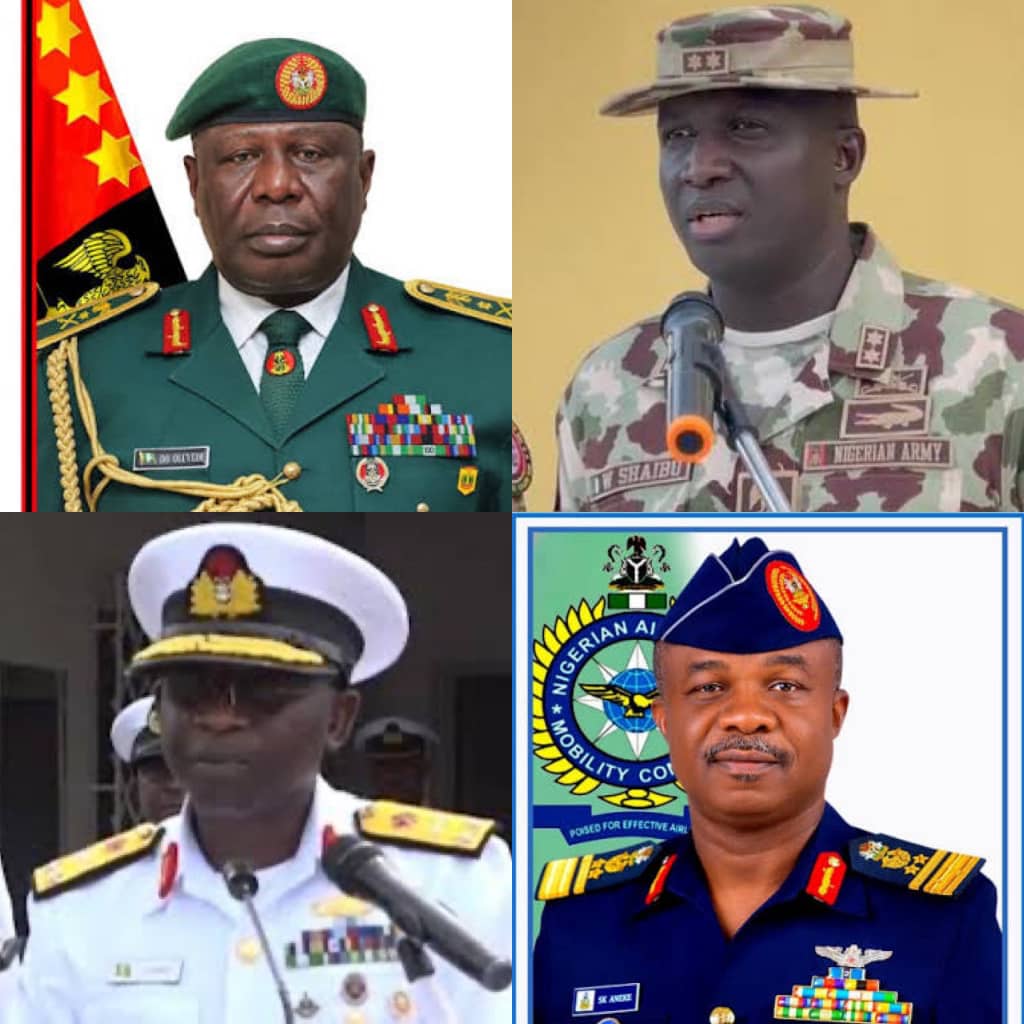Analysis
Nigeria’s New Service Chiefs: Can They Perform?

BY GBOGBOWA GBOWA
Despite President Tinubu’s sweeping military shake-up, civil society groups and international observers remain skeptical that the new service chiefs can deliver real change, citing entrenched corruption, ethnic bias, and lack of accountability.
When President Bola Tinubu, Friday, October 24, 2025 dismissed Nigeria’s service chiefs, the move was hailed by some as a long-overdue reset of the country’s failing security architecture. But for many Nigerians, the appointments of General Olufemi Oluyede as Chief of Defence Staff, Major-General W. Shaibu as Chief of Army Staff, and others felt less like reform and more like reshuffling the same deck of compromised leadership.
The new chiefs are seasoned officers but they are also products of the same military culture that has been accused of enabling violence, mismanaging funds, and failing to protect vulnerable communities, especially the Christian population in Plateau, Benue, and within the Middle Belt; with Kwara State as the recent epicenter.
Civil society reactions have been sharply divided. The Campaign Against Injustice (CAI) had urged President Tinubu to ignore calls for removal of service chiefs, arguing that “destructive criticisms” would demoralize the Armed Forces. But other groups have called for deeper scrutiny, especially in light of the Senate’s recent rejection of Senator Adams Oshiomhole’s motion to investigate military budgets.
The African Democratic Congress (ADC), the country’s emerging opposition party, demanded transparency from Tinubu, questioning the timing of the sack and linking it to rumors of a failed coup. “The reactions of the government have veered between deliberate obfuscation and outright confusion,” said ADC’s spokesperson, Mallam Bolaji.
International observers have also weighed in, with Al Jazeera report that the shake-up came just days after the Nigerian military denied rumors of a coup plot, amid reports that over a dozen officers—including a brigadier general—had been arrested. The timing has led some analysts to interpret the dismissals as a move to consolidate loyalty rather than to reform the military.
The Africa Report noted that 16 senior officers were detained for “indiscipline,” but skepticism persists about whether these arrests were truly disciplinary or politically motivated.

Despite the new appointments, the core challenges remain:
*Ethnic bias and selective intervention continue to plague military operations, especially in Christian-majority regions.
*Budget opacity and procurement scandals have eroded public trust, with no clear mechanisms for accountability.
*Troop welfare and morale remain low, as soldiers report abandonment, unpaid allowances, and inadequate equipment.
*Civilian casualties and displacement persist, with little justice or restitution for victims.
Without legislative support, especially after the Senate under Godswill Akpabio, blocked budget investigations, the new service chiefs may find themselves hamstrung by the same forces that undermined their predecessors.
President Tinubu’s praise of the outgoing chiefs for their “selfless service and dedication” has been widely criticized as an attempt to whitewash failure and deflect blame. For many Nigerians, the question isn’t whether the new service chiefs are competent—it’s whether they are willing and able to challenge the entrenched rot within the Armed Forces.
Until there is real transparency, accountability, and a shift in military culture, this shake-up risks being just another rebranding exercise—old wine in new bottles— served to a nation desperate for genuine security and justice.

























